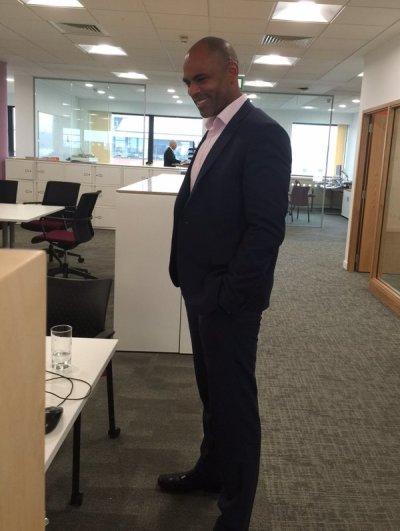Bi-Racial Christian Becomes Mayor of Former Slave Trade Hub

Labour Party's Marvin Rees, a man of Afro-Caribbean descent and a devout Christian, is now mayor-elect of Bristol, a city that was once England's leading slaving port.
Bristol's involvement in the slave trade reached its peak between 1730 and 1745 and the city acquired massive wealth as a result. Many are viewing his win as deeply symbolic.
Praised by Labour leader Jeremy Corbyn, who described Rees' win as "incredible", the mixed- race Mr. Rees, 43, was sworn in Monday and is seen as a role model for black young people.
Rees won 68,750 votes defeating incumbent George Ferguson who finished with 39,557.
According to Operation Black Vote, Mr Rees is the first person of Afro-Caribbean descent to be directly elected mayor of a major European city.
Simon Woolley, director of Operation Black Vote, told the UK Daily Mail, "The symbolism of Marvin winning cannot be overstated. Bristol made its vast wealth in slavery. Slave owners such as Edward Colston have statues and institutions throughout the city."
Noting that the city of Bristol has struggled to acknowledge its past, with the election of Mr Rees, Woolley intoned that this was a "truly redemptive step."
Mr. Rees himself knows what it is like to live through tough circumstances and the path to elected office has been anything but easy.
Rees grew up in poverty in a single-parent household. He has always drawn strength from his Christian faith and continued to do so throughout the campaign. In the final days leading up to the vote he was smeared by his opponent but consciously decided not to reciprocate the rhetoric.
"Elections can very testy and they can get very unpleasant" Rees told Preimer Radio in a post-election interview. Instead of descending into gutter politics, he said, "I can look anyone in the eye and we are confident that we treated them fairly" and that is "an outworking of my faith."
Asked about how he saw that outworking of his faith in his new role as mayor, Rees spoke of his journey of facing adversity throughout his childhood and feeling "left out" and referred to 1 Corinthians 1:27-28, the passage where the apostle Paul speaks of using the weak things to confound the strong.
On a more practical level, Rees mentioned that an additional outworking of his faith is the broad network of personal friends supporting him, many of whom are not in his party, and they strengthen his resolve.
"We're not just one-dimensional politicians, we're still human beings, so being accountable is and being supported is going to be an huge part of my walk now," said Rees.
"To me, my story is part of the currency that I bring to the table, my story I hope that people can see that there is a possibility [of hope] ... if you are a single mom at home with your child, wondering how you're going to eat, worrying how you're going to pay the electric bill in a cold flat ... then that's my story."
"I've got to serve the whole population, rich and poor, but I think the bent, the biblical bent, is toward the least of these, and that's what I intend to bring into my policy, " he continued.
Rees also called on Christians in Bristol to action, asking them to be willing to not only have a clear sense of not only what they want out of politics, but how politics is to be done in a truly prophetic way.




























